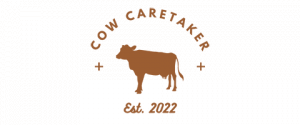Milking cows does NOT hurt them. Unless a cow has an underlying problem, the physical process of milking won't hurt her in any way.
Like other animal-based agricultural enterprises, dairy farming isn’t without its fair share of ethical concerns.
One of the most common concerns is whether milking cows does hurt them, and our post today explores this issue to tell apart facts from myths.
Most animal welfare bodies or organizations such as PETA (People For The Ethical Treatment Of Animals) hold that dairy farming isn’t a cruelty-free endeavor, but we can all agree that most dairy farmers ethically raise their cattle.
But where do we draw the line between ethical and unethical dairy farming? Well, it’s not easy. Opinions on this are largely divided, and it’s not easy to tell the lies from the truth. Let’s go on this journey so that we may find out together.
Table of Contents
Common Myths About Milking Cows
Let’s consider four of the most common myths about milking cows.
1. Cows Don’t Need To Be Milked
Truth be told, yes, cows in the wild or natural habitat don’t really need to be milked. The small amount of milk they produce daily is enough to nurse a calf several times daily, with no human milking required.
When it comes to modern domesticated cows, milking is necessary because they produce much more, usually between five and 10 gallons of milk per day, with an average of 7 gallons.
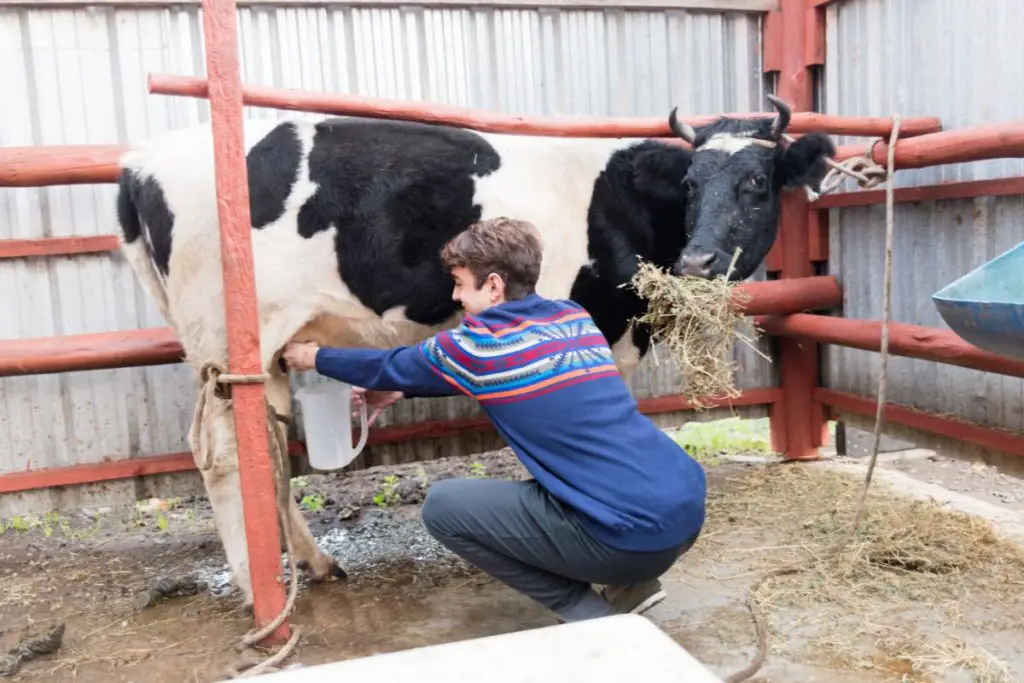
Advancements in breeding technology explain such effects as increased milk production in cows.
More than five gallons per day is quite a lot for a calf to feed on, which makes it necessary for farmers in homestead dairy practice and factory farms to milk their cows.
Breeds such as Holstein that record high milk production rates need to be relieved of the milk in their udders, or they’ll have problems associated with not milking a cow for a long time.
2. Taking Calves Away From Mothers Is Cruel
The belief that taking a calf away from its mother is cruel is distorted.
While we all agree that cows are social farm animals with mothering instincts and a desire to bond with their young ones, this bonding doesn’t always happen in the best of environments for newborn calves.
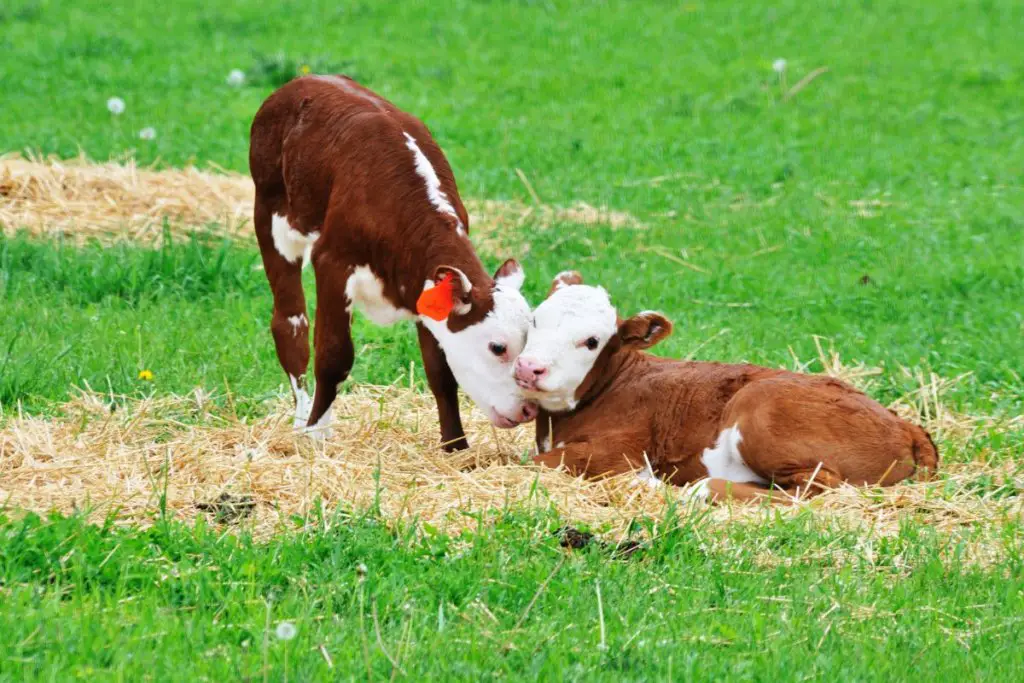
Even on the cleanest factory farms, keeping a newly born calf from suckling its mother in pathogen-free quarters is an uphill task. As such, removing the young one from its mother is more caring.
Animal welfare organizations and activists argue that only a few minutes immediately after birth are enough for female cows to strike a bond with their calves. This is true.
However, in light of saving female or male calves from unsafe environments, removing them from their mothers a few minutes or hours after birth isn’t cruel.
3. Dairy Farmers Steal Milk Meant For Calves
This myth is connected with the one we have just covered above. Many people believe that farmers steal milk meant for calves when they harvest cow milk for human consumption.
On the contrary, some milk harvested from the cow’s udder is still fed to the male or female calves.
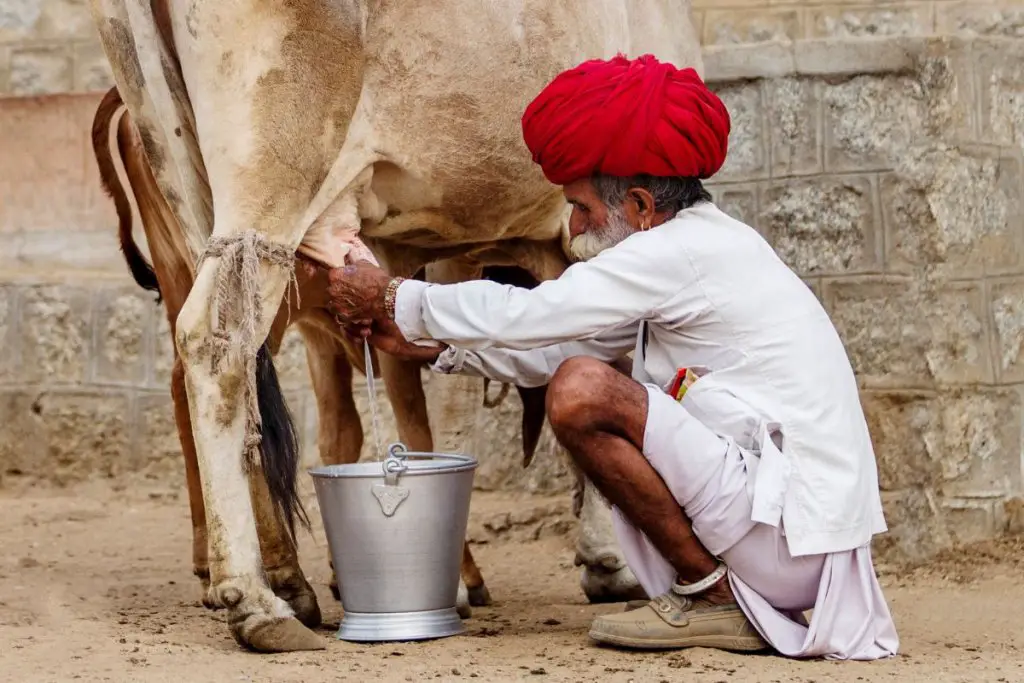
Farmers understand that milk from the mother cow helps calves gain strong immunity, so they must always provide enough milk for the young ones.
This is usually the case for both genders, although some farmers do not feed male calves enough milk but instead raise them depravedly for 16-18 weeks as veal calves.
Bottle-feeding becomes an invaluable way to feed the milk to the calves. In the first few days, all the milk is harvested and stored for later feeding to the calves.
Once it becomes safe for humans to drink, the surplus milk is used as a drink or for making dairy products like ice cream and yogurt at home or in milk-based factories.
Farmers sometimes use milk replacers instead of the mother’s milk, especially if the mother cow develops infections or dies shortly after calving.
4. Milking Curtails Cattle Lifespan
While it’s true that most dairy cows do not reach their expected natural lifespan of 20-25 years because they are sold off to a slaughterhouse when their milk production drops irredeemably, some farms are actually slaughter-free.
People opposed to milking cows for commercial purposes often suggest that farmers err in selling off cows for meat in 3-5 years when they exhibit lameness or no longer produce enough milk.
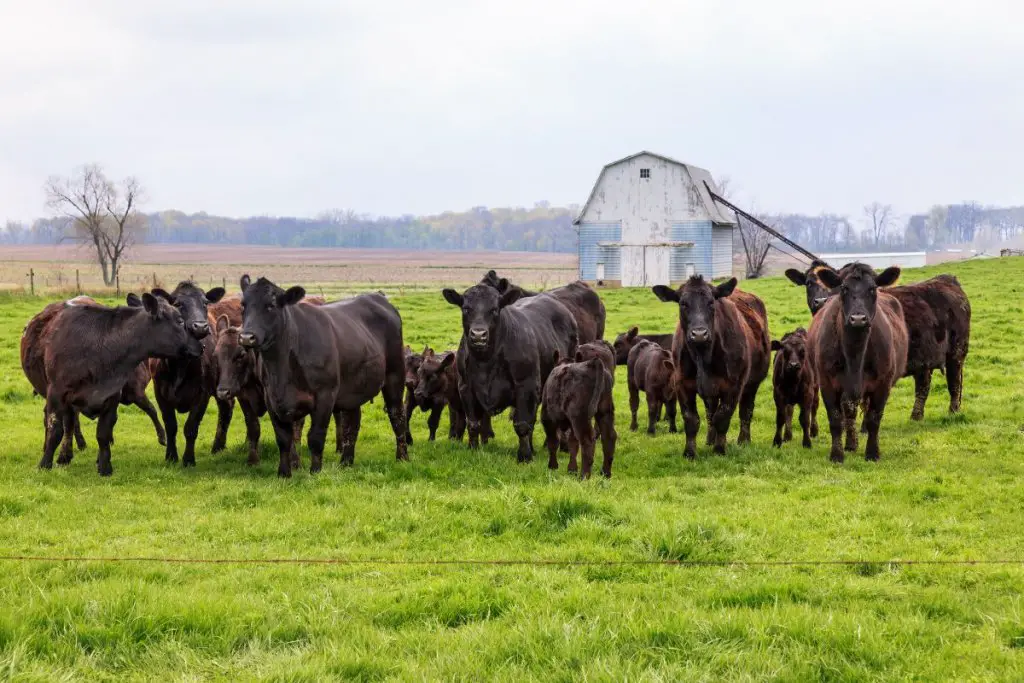
In slaughter-free dairy farms, cows are allowed to die of natural causes or get euthanized if there’s no saving them from a complication.
The general argument is that cows are milked until they become lame and drop dead. But this isn’t the case. Most cows can produce milk their entire lives, provided they are well fed and cared for.
Facts About Milking Cows
As mentioned earlier, it’s a fact that milking a cow won’t hurt her. The physical process of harvesting cow milk using milking machines or by hand milking isn’t painful at all.
Should You Squeeze Or Pull Teats When Hand Milking?
The correct way to hand milk dairy cattle is to clasp your fingers around the teat and methodically squeeze it to release the milk. Pulling the teat is painful for the cow.
Milking Machines Vs. Hand Milking
While hand milking has traditionally been the main practice, it has since been replaced by milking machines on both small dairy farms and commercial factory farms.
Milking machines simulate the natural suckling process and do not hurt the cow unless she has an underlying health problem.
Hand milking is crucial and can’t be overlooked, even as dairy farmers use milking machines. For one, a farmer is able to bond more with their cow when they milk it by hand. Also, hand milking is better when a cow is injured.
If Milking a Cow Doesn’t Hurt Her, What Does?
Most people agree that milking cows doesn’t hurt them, but some activities related to milk production may do.
For example, people argue that artificial insemination is rape and hurts the cow (and the bull).
However, the AI process isn’t rape because the cow has to be on heat first. Secondly, being on heat doesn’t translate into the cow wanting a cow-bull relationship. Thirdly, AI saves the cow from the dangers of having a heavy bull mount it for natural copulation.
Since a cow must have a calf first to start lactating, AI remains a necessary and safer way to ensure reproduction in cattle.
When Milking A Cow May Hurt Her
A cow may get hurt if you milk her when she has the following complications:
- Bruised or sore teats
- Mastitis
- Udder infection
- Blocked teats
- Improperly executed drying off
- Infrequent milking
- Mutilated nerve endings
What Happens If You Don’t Milk A Cow?
If you don’t milk your cow, the following may happen:
- Engorgement and swelling
- Pain and discomfort caused by pressure build-up as milk keeps flowing from the mammary glands.
- Mastitis
- Udder infection
- Udder injury
- Udder rupture (dropped udder)
- Milk production may stop (prompting farmers to sell the cow to a slaughterhouse)
- Death (caused by mastitis or severe cases of not milking a cow for a long time)
Do Cows Enjoy Being Milked?
Is there evidence to show that cows enjoy being milked?
Dairy science has proved that cows do enjoy being milked because they:
- Walk into the milking parlor voluntarily
- Show signs of pleasure and contentment during and after milking
- Go into milking parlors when it’s time to be milked
- Do not become aggressive during milking
- Produce relatively the exact amounts of milk daily over a long period (holding all other dairy farming factors at a constant)
Whether you are a small dairy farmer or a large factory farm, milking your cows won’t hurt them if they are in good health. In fact, milking benefits the cow as it relieves her of milk to prepare her for more production.
Milking also reduces bovine stress and brings pleasure and contentment—the same feelings human mothers also have when they breastfeed their babies or pump their milk.
So let’s raise a glass of milk and toast to more life for our cows!
